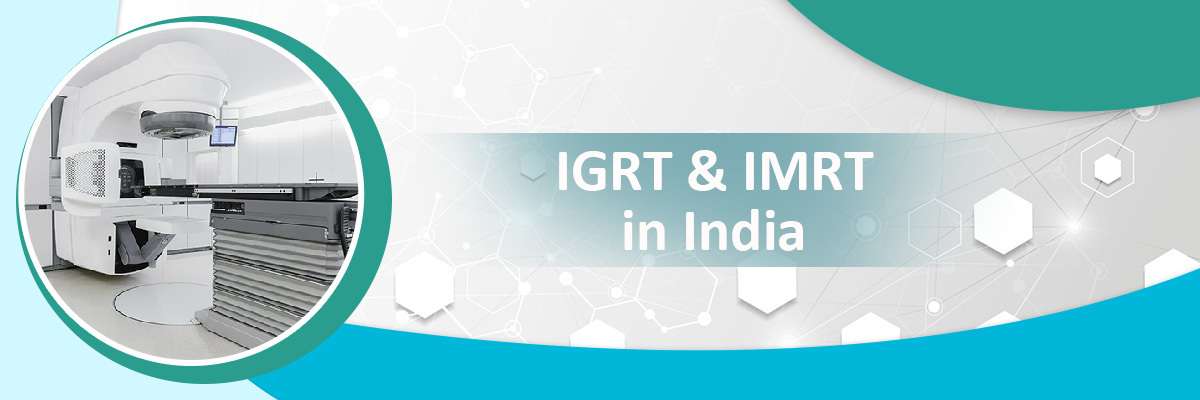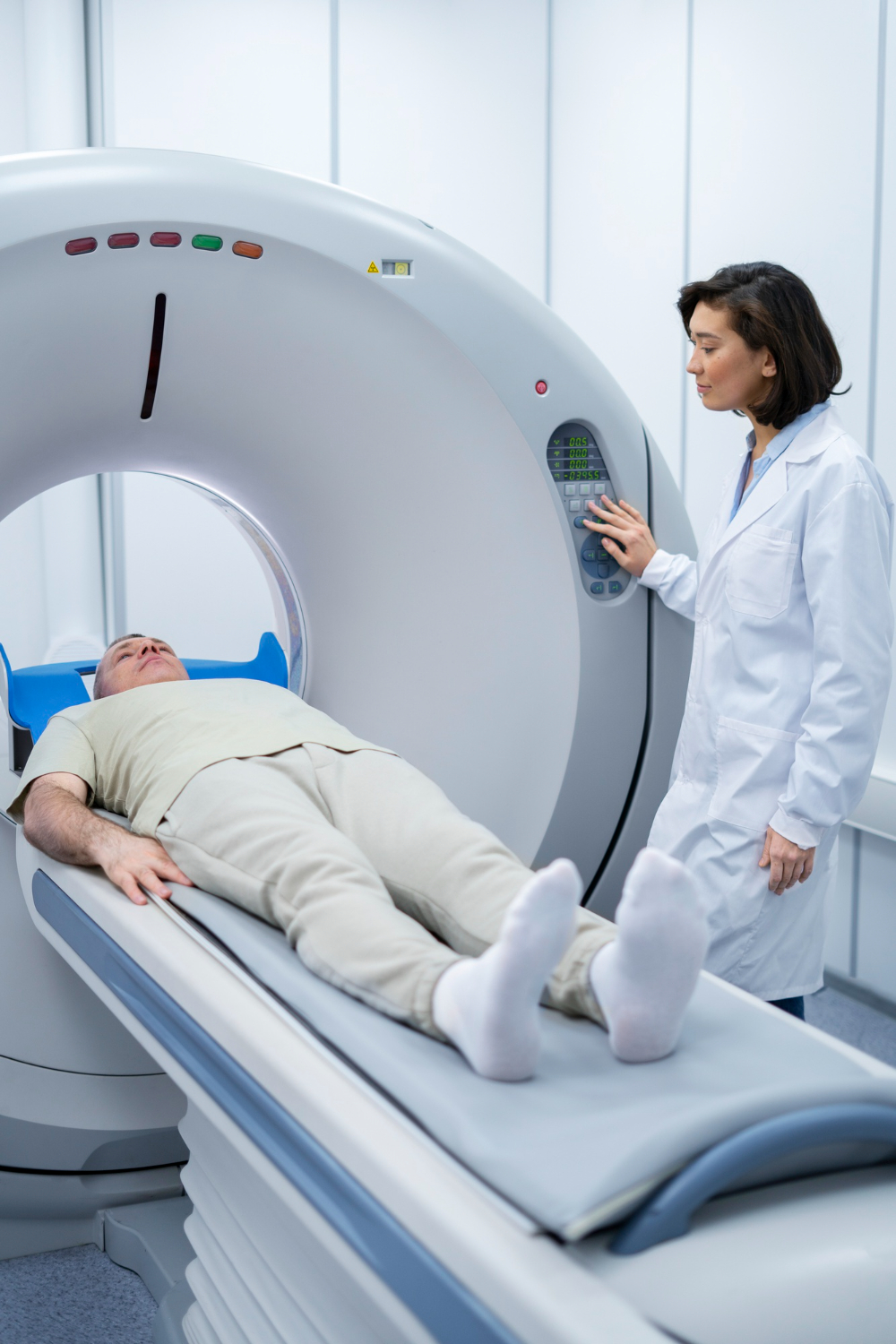
IGRT and IMRT Treatment in India
Cancer, the name itself, evokes fear in people. It is a challenging disease, but you can win the battle against it with early diagnosis and timely treatment. And fortunately, medical science is making extensive advances in cancer treatments, especially radiation therapy.
Intensity-modulated radiation therapy (IMRT) and Image-guided radiation therapy (IGRT) are two such highly advanced and sophisticated radiation techniques that have revolutionized cancer treatment and have been a boon to cancer patients. Radiation therapy is one of the primary cancer treatments either used as a standalone or in conjunction with other treatments.
In addition to IGRT and IMRT, Dr. Sridhar PS specializes in Cyberknife treatment in India, a revolutionary non-invasive option for treating tumors. The Cyberknife system uses real-time imaging to deliver highly focused beams of radiation with sub-millimeter accuracy, making it an ideal choice for hard-to-reach or inoperable tumors. This technology complements IGRT and IMRT by offering another layer of precision and flexibility in radiation therapy, ensuring patients receive comprehensive and tailored treatment plans.
Prof. Dr. Sridhar PS is one of the leading radiation oncologist in India who is an expert in these advanced radiotherapy techniques. He is well-known for his exceptional skills and precise and accurate diagnosis and treatment. He has gained immense knowledge and hands-on experience in treating complicated and critical cases with favorable outcomes in his career spanning more than 26 years. You can consult him at the prestigious Apollo Hospital in Bangalore.

Fight cancer with the latest technology - IGRT and IMRT now available in India -Schedule your consultation today!
Intensity-Modulated Radiation Therapy (IMRT) in India
Intensity-modulated radiation therapy (IMRT) is a highly sophisticated 3D conformal radiotherapy administered by a linear accelerator.
The computer-controlled machine rotates around the patient while precisely delivering radiation dosages to specific areas. The beams can be shaped and directed at the tumors from various angles.
The doctor can change their intensity to reduce the amount of radiation entering healthy tissue and organs while delivering a higher dose to the treatment areas. This method allows for the aggressive targeting of tumors while posing the least possible danger to healthy tissues and organs.

Which cancers can be treated with IMRT?
IMRT is used to treat various kinds of cancers, including:
- Brain tumor
- Head and neck cancer
- Prostate cancer
- Breast cancer
- Gastrointestinal cancers
It is also used to treat pediatric cancers, sarcoma, lymphoma, and gynecologic cancers. It is especially beneficial in treating patients who have undergone radiation before.
If you are searching for an expert radiation oncologist in India for intensity-modulated radiation therapy (IMRT) then you should contact Dr. Sridhar PS. He has years of experience and is well-versed in the latest advancement in radiation therapy.
Book an Appointment
How is IMRT delivered?
Before your treatment, you will undergo a CT scan to create a 3-D map of your tumor. According to it, your radiation oncologist will carefully calculate the amount of radiation you need. Using the images, the doctor will ensure that radiation is delivered to the tumor from various angles using cutting-edge computer programs.
At the start of the treatment, the radiation therapist will ask you to lie down on the table and mark your skin to indicate the locations of the radiation treatments.
How many sessions are required?
You will need multiple IMRT sessions. It is generally given five days a week for several weeks.
The duration of the treatment depends on the type of cancer you have, its size, and its location.
Each session will last for 10 to 30 minutes; you need not worry as it is a painless procedure.
Now, let’s focus on Image-Guided Radiation Therapy (IGRT) in India.
Image-guided radiation therapy (IGRT) is the newest and most sophisticated technology for administering radiation. Before each treatment, a 3-dimensional image of the cancer location and surrounding anatomy is obtained using the imaging equipment in the linear accelerator.
The computer alters and aligns the radiation beam using this information and precisely delivers radiation to the cancer cells while sparring the healthy tissues. IGRT is often used with IMRT to provide targeted radiation to a malignant tumor. Apollo Hospital is among the few medical centers that offer image-guided radiation therapy in India.
Which cancers can be treated with IGRT?
IGRT treats tumors near or on sensitive organs and structures that move due to regular bodily movements such as breathing, bladder, and bowel functions.
It is used to treat:
- Prostate cancer
- Lung cancer
- Spine cancer
- Breast cancer
- Liver cancer
- Brain cancer
- Bone cancer
- Esophageal cancer
- Bladder cancer
How is IGRT delivered?
During each session, you will have to lie on the treatment table, and scans will be taken to ensure your body is positioned correctly. The doctor may take more images or reposition you in between the treatment to help deliver radiation precisely.
The IGRT sessions may extend longer than other radiation treatments due to the time required to gather and view the images.
Before and during IGRT, the radiation oncologist will use imaging tools, including PET, MRI, and CT scans, to detect the cancer’s location more precisely.
In order to assist your treatment team in locating cancer during some IGRT treatments, they may insert fiducial markers into the body within or close to the tumor. Further, they might mark your skin to better align the radiation delivery system.
The doctor will use imaging technology to continuously evaluate your tumor throughout your therapy and adjust as necessary for any changes that may be taking place, like changes in shape, growth, or shrinkage.
How many sessions are required?
IGRT necessitates several sessions. You will mostly undergo IGRT for a few weeks, five days a week. Your type of cancer and the size and location of the tumor will determine the overall number of treatments you will require.
What are the advantages of IGRT?
IGRT is very precise, due to which:
- It is used to deliver high doses of radiation
- It does not harm the surrounding normal tissues
- Reduces the side effects of radiation
- It can monitor the tumor’s position, shape, and size during treatment
Prof. Dr. Sridhar Papaiah Susheela – A radiation oncologist in India par excellence
Dr. Sridhar PS is one of the top radiation oncologist in India, specializing in managing and treating all kinds of benign and malignant tumors.
He is an expert in various radiation techniques, including IGRT, IMRT, SBRT, chemoradiotherapy, and tomotherapy.
He is one of the most sought-after radiation oncologists for CyberKnife treatment in India, having performed more than 2700 procedures till date. Currently, he practices at Apollo Hospital in Bangalore.
Frequently Asked Questions
Once the treatment is completed, the side effects of radiotherapy may last up to two weeks. However, it may take a couple of weeks to several months for you to feel normal, depending on the type of cancer treated.
Patients usually respond favorably to either brachytherapy or external beam radiation in the early stages of the disease. With any approach, success rates of about 90% are possible.
A cell cannot expand or spread if it does not divide. After the radiation is finished, the mass may decrease in cancers that divide gradually over a long, prolonged period.
For example, in prostate cancer, a tumor typically takes approximately 18 months to shrink (some quicker, some slower).
Cancer cells will eventually grow again if radiotherapy doesn’t completely eradicate them. Regarding radiation treatment, we now have more knowledge.
Specific immunotherapies and targeted cancer medications may entirely eradicate cancer. Others might control the tumor for a few months or years until it shrinks.
Depending upon the type of cancer, your doctor may instruct you to avoid and consume specific foods.


